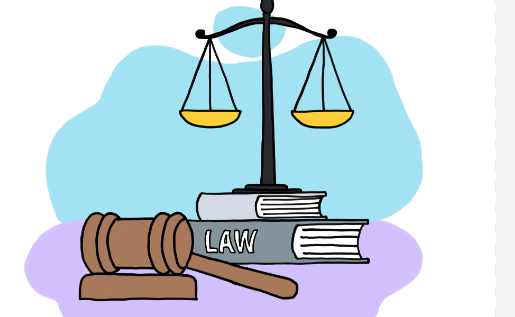Becoming a lawyer in the USA typically involves completing several steps, including obtaining a bachelor’s degree, attending law school, passing the bar exam, and fulfilling any additional requirements in the state where you plan to practice. Here’s a general overview: Undergraduate Education: Obtain a bachelor’s degree from an accredited college or university. There is no specific major required for admission to law school, but courses in English, history, political science, economics, and public speaking can be beneficial. Maintain a high GPA as law schools consider undergraduate grades during the admissions process. Take the LSAT: The Law
School Admission Test (LSAT) is required for admission to most law schools in the US. It assesses reading comprehension, logical reasoning, and analytical reasoning skills. Prepare for the LSAT by studying and taking practice exams. Apply to Law School: Research and apply to accredited law schools. Consider factors such as location, specialization areas, faculty, and reputation. Submit your undergraduate transcripts, LSAT scores, letters of recommendation, personal statements, and any other required documents. Attend Law School: Complete a Juris Doctor (JD) program at an accredited law school. Law school typically takes three years to complete if attending full-time. During law school, you will study various legal subjects, participate in moot
court or mock trial competitions, and may have opportunities for internships or externships. Pass the Bar Exam: After graduating from law school, you must pass the bar exam in the state where you intend to practice law. The bar exam assesses your knowledge of legal principles, rules, and procedures. Each state has its own bar exam, and passing scores vary. Some states also have a separate ethics exam. Character and Fitness Review: Before being admitted to the bar, you must undergo a character and fitness review. This process evaluates your moral character, integrity, and fitness to practice law. It typically involves submitting an application, providing references, and possibly attending an interview. Admission to the Bar: Once you have
passed the bar exam and completed the character and fitness review, you will be admitted to the bar and licensed to practice law in the state where you passed the exam. You may need to attend a swearing-in ceremony and pay licensing fees. Continuing Education: After becoming a licensed attorney, you will need to fulfill continuing legal education (CLE) requirements to maintain your license. CLE requirements vary by state and typically involve completing a certain number of hours of approved legal education courses periodically.
Keep in mind that specific requirements and procedures may vary slightly from state to state. It’s important to research the requirements of the state where you plan to practice law and follow the necessary steps accordingly.
Do I Need a Lawyer to Represent Me in Court? | The Defenders Law Firm
Whether you need a lawyer to represent you in court depends on various factors, including the complexity of your case, the severity of the charges against you, your familiarity with legal procedures, and your comfort level with representing yourself in court. Here are some considerations to help you decide: Legal Knowledge: If you’re not familiar with the law or court procedures, it’s advisable to have a lawyer who can navigate the legal system effectively on your behalf. Complexity of the Case: If your case involves intricate legal issues,
multiple parties, or significant potential consequences (such as large fines or jail time), having a lawyer can be crucial to ensure your rights are protected and to mount a strong defense. Emotional Distance: Legal proceedings can be emotionally taxing. Having a lawyer can provide you with an objective perspective and help you make rational decisions based on legal strategies rather than emotions. Negotiation Skills: Lawyers are trained in negotiation tactics and can often secure better outcomes through plea bargains or settlements than individuals representing themselves. Courtroom Experience: Lawyers have experience presenting cases in court, cross-examining witnesses, and making persuasive arguments to judges and juries. This experience can
be invaluable in achieving a favorable outcome. Legal Documents and Procedures: Courts have strict rules regarding legal documents and procedures. A lawyer can ensure that all necessary paperwork is filed correctly and on time, preventing procedural errors that could harm your case. While you have the right to represent yourself in court (known as “pro se” representation), it’s generally recommended to seek legal representation, especially for serious legal matters. A qualified lawyer can provide you with legal advice, protect your rights, and advocate on your behalf to achieve the best possible outcome.






